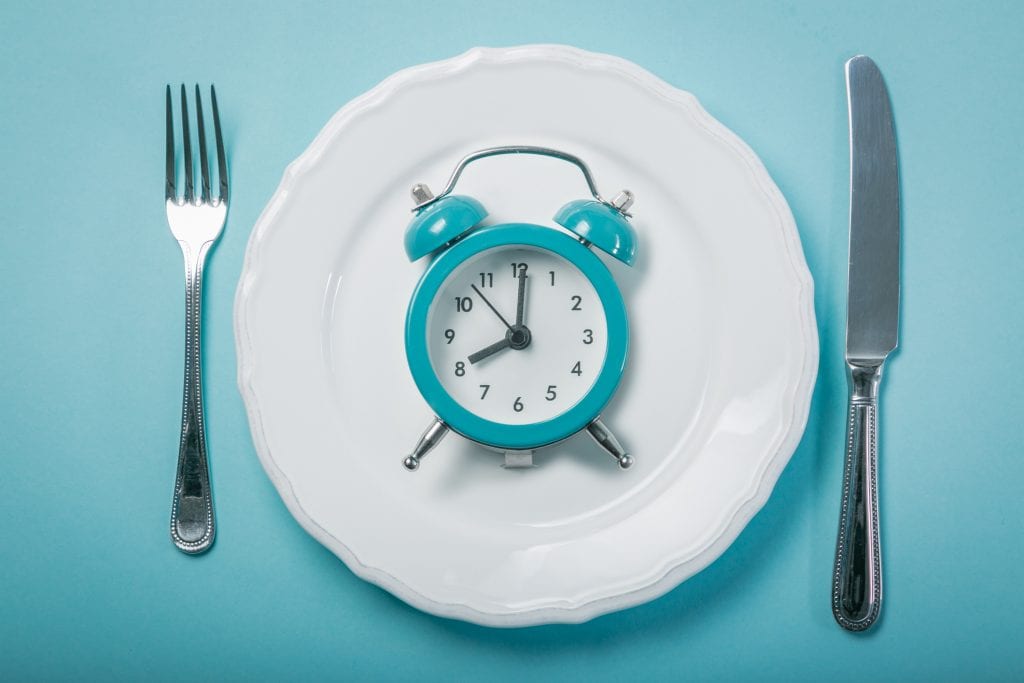Intermittent Fasting Benefits for Your Ageless Lifestyle
By Shirley Meerson, CHWC, NABBW’s Associate for an Ageless Wellness Lifestyle
Move over diets. Intermittent fasting is here to stay. And with great benefits for an Ageless Wellness Lifestyle.
Enter a new era that focuses on when you eat and not what. It’s all about controlling the hours when you eat, as opposed to what you eat.
Sounds too good to be true…lol.
If you want to lose fat, improve metabolism, and experience other health benefits all without giving up your favorite foods, intermittent fasting might be for you!
Are you ready for a new eating pattern?
Intermittent Fasting Meaning…
You eat, but in a shorter window of time. Some people call it time-restricted fasting (TRF).
There are lots of ways to intermittently fast. It can be done daily, weekly, or monthly.
Intermittent fasting is just that – fasting intermittently (periodically). It’s an “eating pattern,” rather than a “diet.”
If you’re unsure due to your health conditions, then err on the side of caution and ask your medical practitioner.
I practice and suggest the 16-8 method. And occasionally do the 14-10 method.
The 16 – 8 hours Intermittent Fast (IF) is when you consume no food for 16 hours and eat normally during the other 8 hours.
Try it one day a week. When you’re ready, then kick it up a notch to two times a week. Or contact me as your ageless wellness health coach and mentor and I’ll be happy to help you get started.
You may be wondering if fasting intermittently will lead to an increase of what you eat during those times when you go back to eating. In other words – are you gonna pig out? And that’s a great question. It didn’t for me.
How To IF
I’ve been in the world of health foods and nutrition forever. I’ve experienced what foods work for me in terms of energy, weight gain, and ethics. And yet the amount of information that we are faced with daily in terms of the marketing of food trends, diets, what to eat or not – well, it’s staggering.
I already use this intermittent fasting in my ageless wellness toolkit. It gets my stamp of approval!
It’s a system that is easier to stick with for most people. It’s not restrictive. You basically are giving up one meal. Or a snack. Or eating an early dinner.
There are so many potential benefits – cellular clean-up, hunger reset, weight loss.
16 – 8 IF = The latest bias on intermittent fasting– has people skipping breakfasts and eating at noon, 1, or 2pm. I prefer to stop eating the other way – stop in the late afternoon, early evening. As a result, you go to sleep and wake up and can eat a breakfast. Stop food at 4:30 or 5:00pm and only drink water or tea until bed. 16 hours passes, and you break the fast then at 8:30am or 9:00am the next day. Done.
14 – 10 IF = Stop eating at 6pm and start at 8am the next day. Easy peasy.
Intermittent fasting (IF) benefits are more than regular calorie reduced diets. Not only is it easier for many people to stick with, but it also seems to have a metabolic advantage. These are excellent things when it comes to long-term health. I do feel my stomach shrinks a bit and when I eat after the fast – I am not at all ravenous. This feels quite good.
Intermittent Fasting Can:
- Reduce inflammation
- Improve heart health
- Speed fat loss
- Slow down or reverse aging process
- Improve mood and memory
- Reboot the immune system
- Benefit cognitive health
- Improve mental health
- Lower risk of developing a chronic disease
- Help with weight loss
The Biology Behind IF
A wonderful intermittent fasting benefit is that it promotes autophagy. This is the process your body undergoes to clean out damaged cells and generate new ones. It’s a cellular self-cleansing process.
Glycogen, a type of energy, is created from the breakdown of carbohydrates and gets converted to a sugar called glucose. When the body doesn’t need to use the glucose for energy, it stores it in the liver and muscles. After 12 hours with no food, your liver’s stores of glycogen are depleted, and your body taps into its fat cells for energy.
According to David Perlmutter, MD, FACN, ABIHM, board-certified neurologist and member of the Board of Directors of the American College of Nutrition and author: “Miss a meal here and there. It’s good for you. It’s a low level of stress on your body called hormesis that’s good for you. It helps with longevity and brain preservation.”
There you have it. Most people are constantly eating and digesting – 3 meals a day – your system must work 24/7 to process everything.
Intermittent fasting is merely giving your body a break during a period of time so that it could really improve digestion in the longer term.
Takeaway
This is not a lose weight quick plan. It’s not a health fad promising that you’ll lose 7 lbs in 7 days.
You, the consumer do not have to purchase a thing!
It’s all about the when. Looking at the when of your eating.
Consequently, be sure to know what results you’re looking for and understand the benefits of intermittent fasting.
If you’d like more information, I’ve recorded a short video overview on intermittent fasting, on my YouTube channel where I get up close and personal about my experiences with intermittent fasting. (While you’re there, please subscribe!)





Leave a Reply
You must be logged in to post a comment.